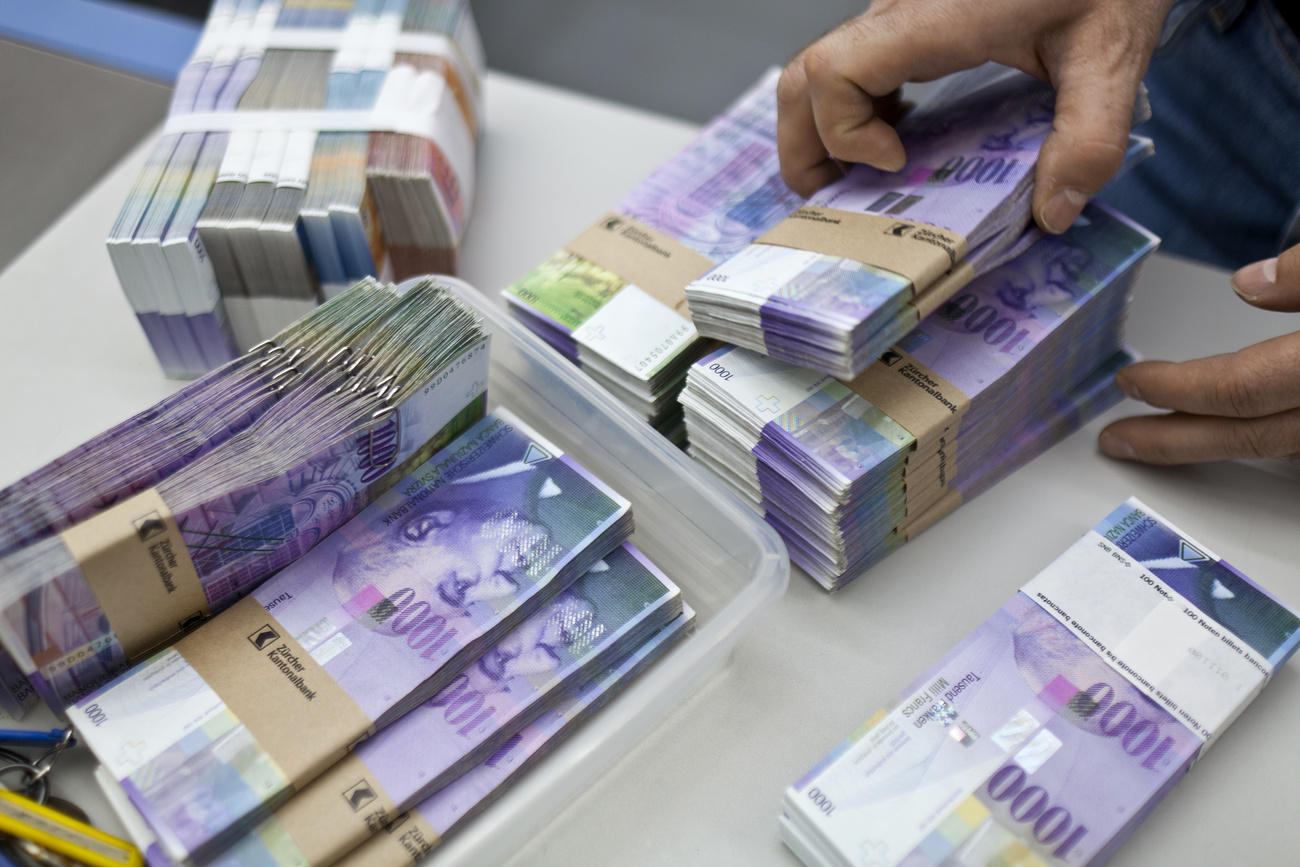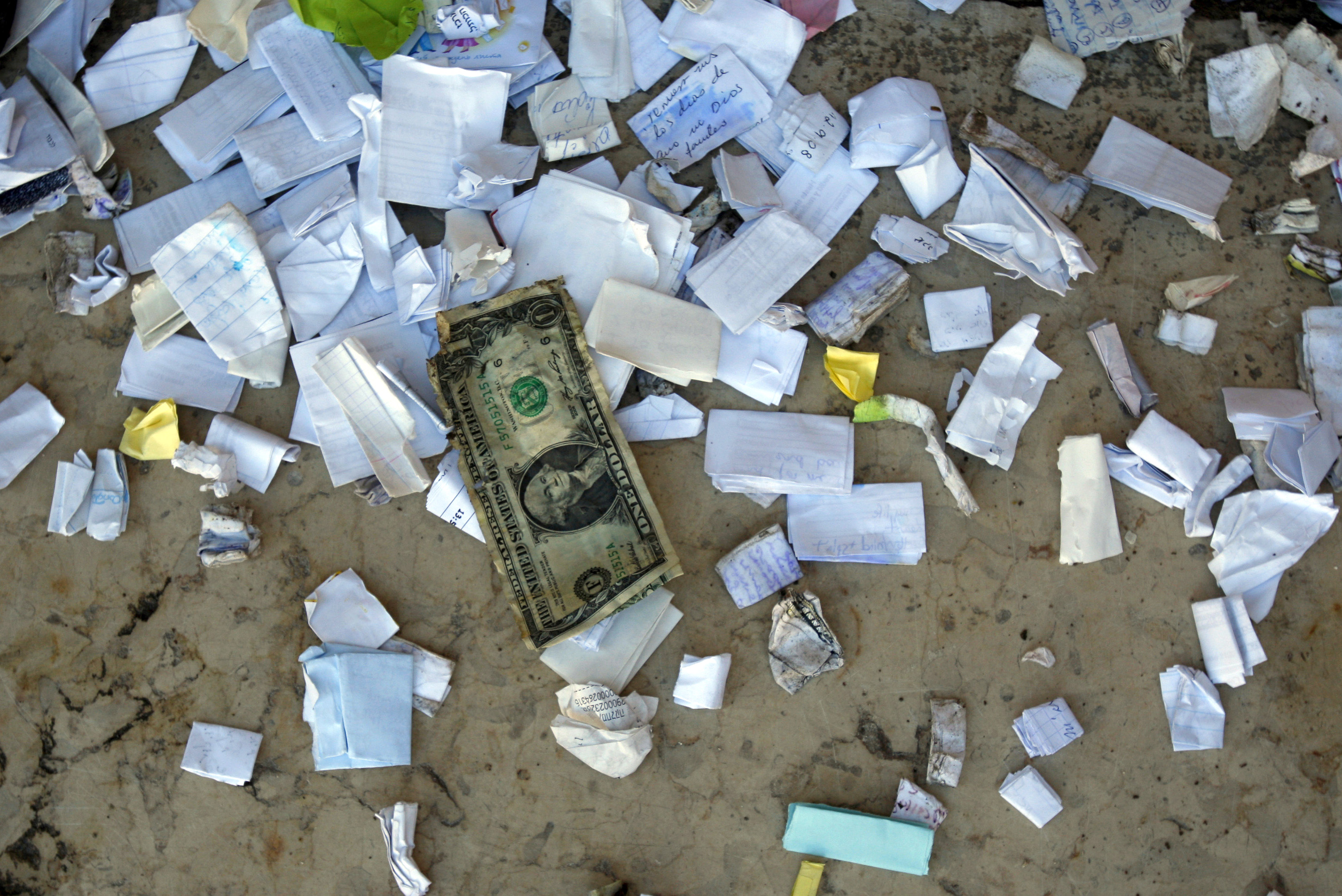Switzerland: the imaginary champion
Switzerland performs well in economic rankings but it isn't a model when it comes to the social and environmental costs of its economic activities abroad. Historian Jakob Tanner writes that Switzerland must be careful not to be blinded by a glossy version of itself that it had a hand in creating.
“All things considered we are in the top ten in all rankings, this is quite stable at a high level,” explained Nicolas Bideau, Switzerland’s top country salesman. The head of Presence Switzerland is fulfilling its core mission by raving about the smart “cliché Switzerland”, which is apparently “sexy” again.

Presence Switzerland was established in 2001 as an administrative unit of the government with the goal of “generating sympathy for Switzerland”. According to the website of the Swiss government, the impetus for this was the “topic of dormant assets”.
This concerns Jewish accounts during the Nazi era that had not been repaid by the banks. In the late 1990s, Switzerland was surprised by this suppressed history and plunged into a damaging image crisis. From then on, such regrettable developments were to be prevented through “national advertising” worth millions of francs.
In the past, this was called national propaganda – and it has never been known for being true to the facts. Switzerland’s positioning in the global league of the top ten is not only misleading but could also have a disastrous political impact. The small, neutral country has a fatal tendency to take success stories, which it has prepared with the best intentions, at face value and to fall for them. The domestic political emergency surrounding “dormant assets” was a striking example of this. In this respect, nothing has been learned.
Switzerland is now a prosperous country known for its high quality of life in cities and its beautiful landscapes. In view of the breathtaking boom in ranking and rating indicators, it is not difficult to put together examples that convey a sense of living in the clouds. The World Economic Forum (WEF), which meets annually in Davos, places Switzerland in fourth place on its Global Competitive Index.
It also ranks fourth in the Index for Economic Freedom (Heritage Foundation). It ranks third in the Global Entrepreneurship Monitor report. In the UN Human Development Index, it ranks second behind Norway, and on the Environmental Performance Index published by the WEF with American universities it shines in first place. The list could go on.
Presence SwitzerlandExternal link is part of the foreign affairs ministry and is tasked with protecting and promoting Switzerland’s interests abroad using public relations tools. According to the website, this this includes transmitting general knowledge about Switzerland, forging an understanding for Switzerland, as well as portraying Switzerland’s diversity and attractiveness
The situation looks grim, on the other hand, when the social and ecological costs caused by Switzerland elsewhere in the world are considered. Switzerland also ranks first in the Bertelsmann Foundation’s Sustainable Development Report 2019External link, which examines which countries prevent others from achieving the Sustainable Development Goals.
Unlike Sweden, which is also a rich country, Switzerland is one of the top in the global distribution struggle. The financial sector also looks poorly. Switzerland doesn’t stand out for international tax transparency, combating money laundering and money flows in politics. And in the World Bank’s Ease of Doing Business Index, which documents business friendliness and corporate regulation, Switzerland has dropped from 15th to 38th place in the last 12 years. Even if the quality of democracy and gender equality are measured, the result is still mixed.
The ranking and rating industry has its own credibility problems. But global communication today is largely based on such measurement and evaluation instruments, so fundamental criticism does not go very far. However, the cult of quantification and rankings encourages a technocratic understanding of countries. The fixation on list placement in international comparisons threatens to become a substitute for prudent political decisions. Switzerland must be careful not to be blinded by a self-made glossy version of its image.
This commentary was first published in “Das MagazinExternal link“.
The views expressed in this article are solely those of the author, and do not necessarily reflect the views of swissinfo.ch.
Adapted from German by Jessica Davis Plüss and Urs Geiser

In compliance with the JTI standards
More: SWI swissinfo.ch certified by the Journalism Trust Initiative
















You can find an overview of ongoing debates with our journalists here . Please join us!
If you want to start a conversation about a topic raised in this article or want to report factual errors, email us at english@swissinfo.ch.